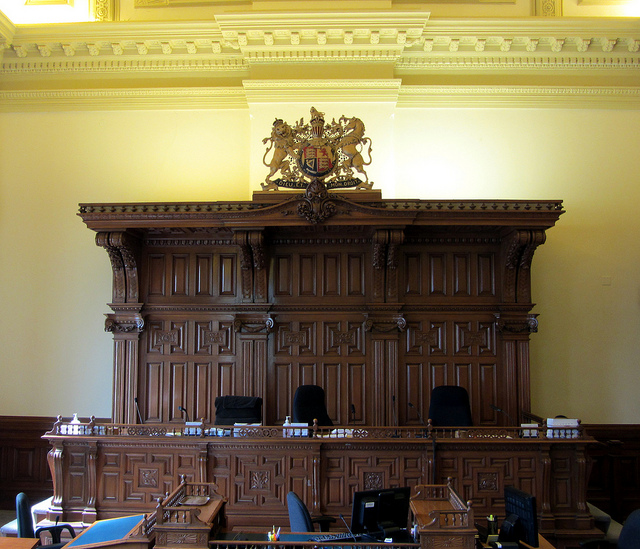Like this article? rabble is reader-supported journalism. Chip in to keep stories like these coming.
The courts need another option.
On Thursday, Ontario Justice William Horkins found former CBC host Jian Ghomeshi “not guilty” of five sexual-assault-related charges involving three different women. Legally, it was the right decision. But it isn’t the right conclusion. As Judge Horkins acknowledged, not guilty “is not the same as deciding in any positive way these events never happened.”
In our legal system, the crown must prove “beyond a reasonable doubt” someone committed a crime. Defendants don’t have to prove they’re innocent.
But sexual assaults are often he-said/she-said. If the defendant doesn’t testify, and if the assaults happened long ago, there is — the judge noted — “no tangible evidence.” The court has “only the sworn evidence of each complainant, standing on its own, to be measured against a very exacting standard of proof.”
That’s where the Ghomeshi case collapsed.
The defence reasonably honed in on “dramatic non-disclosures,” highlighting contradictions to the women’s court testimony.
One example: “L.R. was firm in her evidence… she chose never to have any further contact” with Ghomeshi. But the defence confronted her with after-the-act “flirtatious” emails, including one with a bikini photo of her. She then claimed the emails were part of a “plan” to confront him.
That might have been plausible if disclosed earlier. Inconsistency is not a fatal flaw, but failing to disclose shreds credibility. Her testimony, said the judge, revealed conduct “completely inconsistent” with her sworn testimony “the mere thought of Jian Ghomeshi traumatized her.”
Who’s to blame: police and prosecutors for not insisting the women fully disclose, or the women for not disclosing? Defence lawyers confront prosecution witnesses with “inconsistent statements” in trials of every sort every day. Someone should have asked the right questions in advance.
Instead of upending our entire criminal justice system — do we really want to eliminate the presumption of innocence, or tell the defence it can’t challenge the credibility of witnesses? — we should consider the Scottish option of a third verdict: “Not proven.” Twenty per cent of Scottish trials end that way.
Such a verdict,” noted the Scotsman in an editorial, may be “unsatisfactory to both parties, the aggrieved finding the accused escape, the accused leaving the court without having had his name cleared. But this is often fair.”
It certainly would have been more fair in this case.
This article first appeared in Stephen Kimber’s Halifax Metro column.
Photo: Loozrboy/flickr
Like this article? rabble is reader-supported journalism. Chip in to keep stories like these coming.




